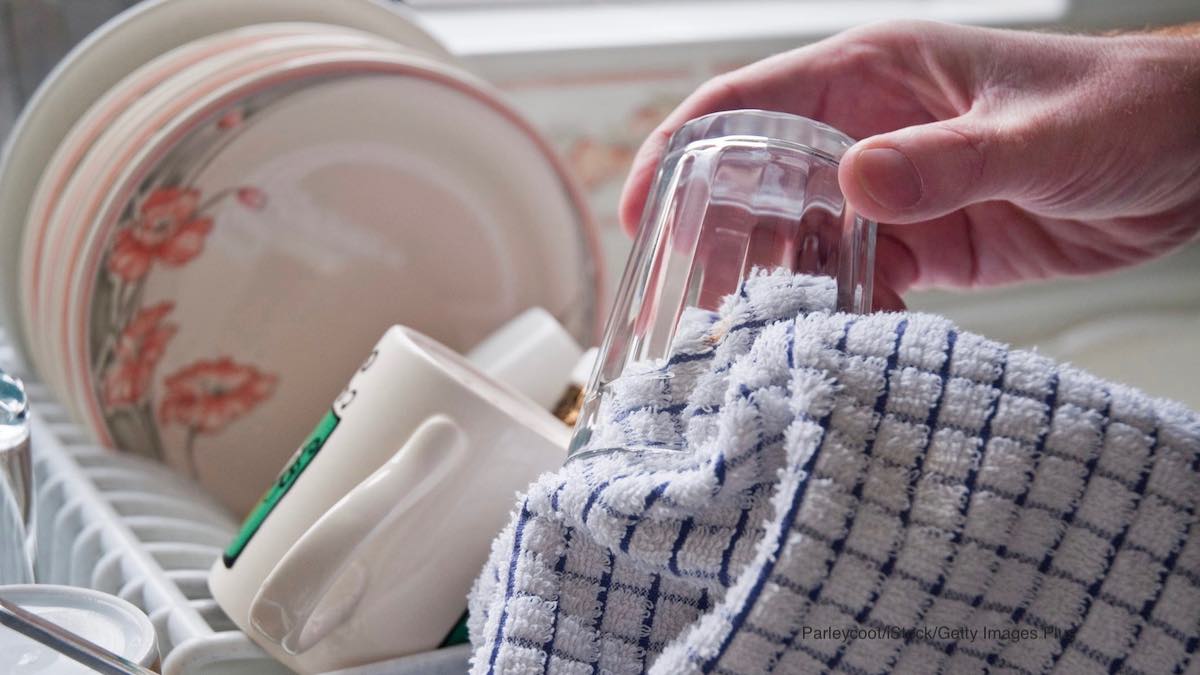Tea towels, or kitchen towels, can cause cross-contamination in the kitchen, leading to food poisoning, according to a study posted in ASN Microbe 2018. Cross-contamination is when bacteria are spread from one source to food that was not previously contaminated. The study was conducted at the University of Mauritius.

The study’s authors collected 100 kitchen towels from homes after they were used for one month. Bacteria were collected from the towels and identified. In addition, those participating in the study where asked to fill out a questionnaire designed to pinpoint risk factors.
Bacterial growth was found in 40% of the tea towels. The bacteria “significantly increased” by the size of the family, extended family, and the presence of children in the family. Multipurpose towels had higher colony forming units (CFU) than single use towels. In addition, humid towels had higher CFU than dry ones.
Cotton towels had significantly higher bacterial counts than nylon towels. Out of the 49 samples that were positive for bacteria, 36.7% grow coliform, which are indicators of fecal matter, 36.7% had Enterococcus species, 30.6% had Pseudomonas species, 28.6% had Bacillus, 14.3% had aureus, 4.1% Proteus species, and 2.0% coagulase negative Staphylococcus.
In an interesting note, Coliform and S. aureus bacteria were found at a significantly higher prevalence on the kitchen towels used by non-vegetarian families, while Enterococcus bacteria were found at a higher prevalence on the kitchen towels of vegetarian families.
The study states that multipurpose kitchen towels should be discouraged. Other ways to protect yourself against food poisoning is to use disposable cloths or paper towels, change dish cloths regularly, at least every day, and disinfect reusable towels by washing them in water warmer than 140°F after each use.
Other ways to avoid cross-contamination in the kitchen are to use separate cutting boards for meat and for foods that are eaten raw, wash cleaning brushes in a dishwasher, or clean with soap and water after each use, and to wash hands with soap and water after handling foods such as raw meat. The study authors also said that larger families and those with children and the elderly should be more vigilant about hygiene4 in the kitchen.




